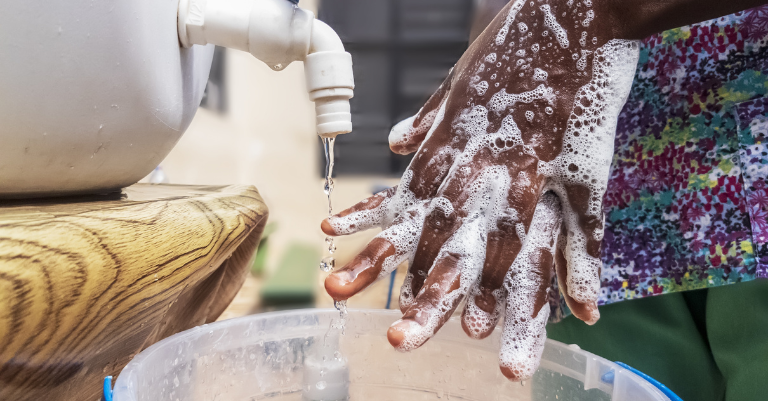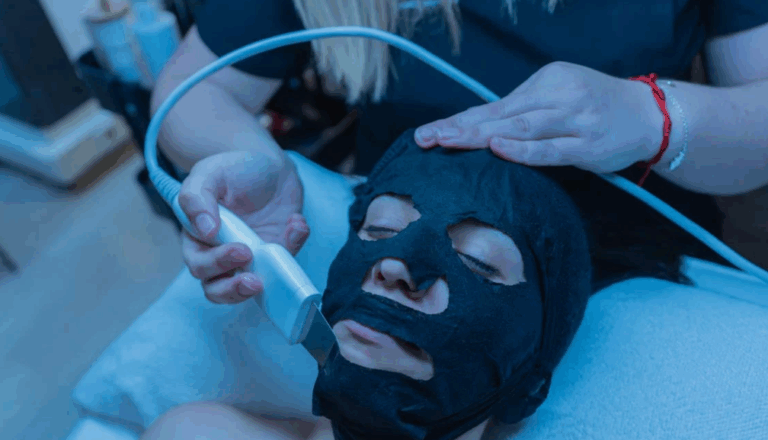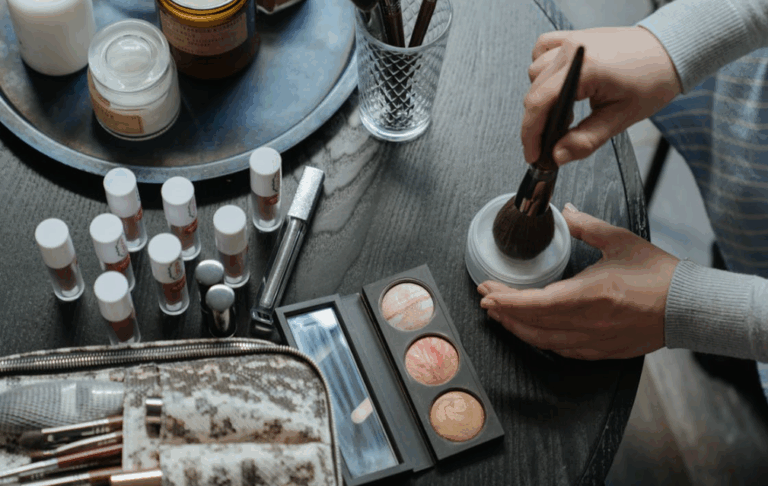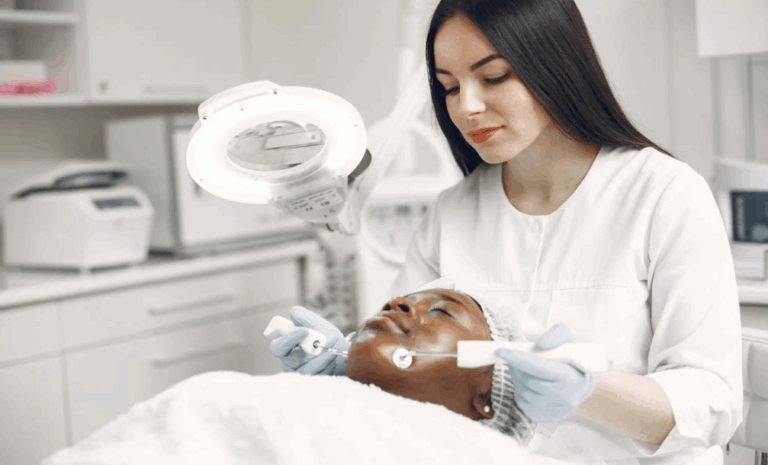
A Complete Guide to Good Personal Hygiene
The first question that comes to mind after hearing “Personal Hygiene” is ‘what is personal hygiene’? The answer is quite simple, and it is basically the way you take care of your body and health. This involves bathing, cleaning your hands, brushing your teeth, and other activities. Every day, you come into touch with millions of bacteria and viruses from the outside world. They can remain on your skin and, in rare circumstances, make you unwell. Personal hygiene routines can help you and others around you stay healthy. They can also make you feel better about yourself.
Good hygiene is helpful to your entire physical and mental health, and it is more than simply being clean. Keeping your complete body clean from head to toe not only helps avoid diseases and infections caused by dangerous germs but may also enhance your self-esteem. We tend to feel better when we take care of ourselves. There are several personal hygiene practices that you may implement into your daily routine to ensure that you and the environment around you are clean. Personal hygiene begins with the basic hygiene followed at home.
Good Personal Hygiene Rules
Personal hygiene means something different to each individual. However, these primary categories are an excellent place to start when it comes to developing healthy hygiene habits:
Restroom sanitation
After using the toilet, wash your hands properly. Scrub for 20 to 30 seconds with soap; ensure to get between your fingers, behind your hands, including under your nails. Wipe with a washcloth after rinsing with clean water. If you don’t have access to running water or soap, you can use an alcohol-based hand sanitiser instead. Use one that has at least 60% alcohol.
Shower Hygienic Practices
Showering frequency is a matter of personal taste, although most individuals will benefit from a rinse at least every other day. Showering with soap removes dead skin cells, germs, and oils from the skin. Hair should also be washed at least twice a week. Shampooing your hair and scalp removes buildup and protects your skin from greasy residues that irritate it.
Nail care
Keep your nails short and tidy by trimming them on a regular basis. To remove buildup, dirt, and bacteria, use a nail brush or a towel to clean under them. Cleaning your nails prevents germs from entering your mouth and other bodily openings. It’s also a good idea to avoid chewing your nails.
Dental Hygiene
Good dental hygiene entails more than just having beautiful white teeth. Gum disease and cavities may be avoided by properly caring for your teeth and gums. Brush for 2 minutes at least twice a day. Brush as soon as you get up and before you go to bed. Brush after each meal, if possible. Floss between your teeth at least once a day, and ask your dentist about antimicrobial mouthwash. These two actions can aid in the prevention of tooth decay and the elimination of pockets where bacteria and germs can accumulate.
Hand Sanitation
Germs on your hands can enter your body mainly through your mouth, nose, eyes, or ears. Wash your hands whenever you prepare or consume food, when you handle trash or litter, anytime you cough or sneeze, or if you come into contact with an animal. Conversely, wash your hands after changing a baby’s diaper, assisting someone in cleaning themselves, or cleaning a cut or wound.
Infection Control
If you’re sick, take precautions to avoid infecting others. Covering your mouth and nose while sneezing, wiping down shared surfaces with an antibacterial wipe, and not sharing utensils or devices are all examples of good hygiene. Throw away any dirty tissues as soon as possible.
Personal Hygiene Checklist for Girls
Personal Hygiene During Periods
Menstrual hygiene is a sanitary technique that protects women against infections in their reproductive and urinary tracts when they are menstruating. Unfortunately, taboos and socio-cultural limitations continue to obscure menstruation and menstrual practices, resulting in teenage girls lacking information and being uninformed of scientific facts and hygienic health practices, leading to negative health effects.
Here’s a rundown of the negative consequences of inadequate sanitation:
- Urinary infections
- Urinary tract infections
- Fungal infections
- Vaginal yeast infections
- Rashes
- Foul odour
- Cervical cancer can be brought on by poor menstrual hygiene.
- Sexually transmitted diseases such as Herpes, Hepatitis B, and STDs can develop through unprotected sexual relations during their period.
Here are few tips on how to maintain personal hygiene during periods:
Keep changing your sanitary product every 4-6 hours: The guideline for maintaining vaginal wellness is to change sanitary napkins or tampons every 4-6 hours. Many women make the mistake of wearing a sanitary pad or tampon for an extended period of time. Menstrual blood tends to degrade gradually once it exits the body. Leaving the used pad in contact with the vaginal region and skin for extended periods of time exposes the area to bacterial infection and irritation. To avoid toxic shock syndrome, tampons should not be kept within the body for longer than four hours. Before replacing the pad or tampon, clean the region as directed in the preceding step.
Ensure a clean pubic area: Periods may be a nightmare to deal with. Since germs stick to your body after removing your sanitary napkin, it’s important to wash your vaginal area frequently. Most individuals wash their hands regularly, but not correctly—that is, from the vagina to the anus, not conversely. When you move your hand from the anus to the vagina, germs can be transmitted from the anus to the vagina or urethra opening, resulting in infections. To avoid stinging and rashes, dry the area with clean tissue paper before applying absorbent talcum powder.
Avoid vaginal cleaning products and douches: It’s a no-no to use vaginal washes and douches during your period. Not only is the efficiency of vaginal cleaning solutions in question, but the use of douches during this period might injure the private parts and transmit illness. In addition, during monthly cycles, the vaginal region has its own cleansing mechanism, and these artificial hygiene products might obstruct this natural process, resulting in infections and bacteria development.
Dispose your sanitary products carefully: It’s critical to dispose of your tampons and sanitary napkins properly. Make sure you don’t flush or throw away your used pads and tampons all at once. Before throwing them out, wrap them carefully to prevent germs and diseases from spreading. If you use a menstruation cup, clean it once a day with warm water and antibacterial solutions to get rid of any germs.
Strictly adhere to one way of sanitation: During high flow, women commonly use tampons and sanitary napkins, or two sanitary napkins at once, which is an effective approach. While it may keep you dry and protect your clothes from being soiled, it can also cause illnesses. The accumulating blood attracts bacteria and leads to diseases if it is not changed often. During periods of intense flow, it’s best to stick to one sanitary napkin and replace it as often as possible. These cardinal guidelines will aid in your overall health and period management.
Personal Hygiene in Pregnancy
During pregnancy and the postpartum period, it’s critical to maintain your health as much as possible. For your and your baby’s health and safety, keep all of your medical appointments and follow your doctor’s recommendations.
Poor hygiene can expose you to various germs and microorganisms, all of which can infect you. Certain infections can reach your child and harm it at its most sensitive development time, perhaps resulting in long-term abnormalities. Apart from germs, the effects of ingesting any hazardous chemicals or substances might be disastrous, especially when all that is required to prevent it is simple basic hygiene.
Preventing infections, being comfortable, and feeling rejuvenated are all benefits of good hygiene during pregnancy. Here are some basic hygiene recommendations:
- Maintain Vaginal Hygiene: Increased vaginal discharge occurs in pregnant women, stimulating the growth of bacteria. It can cause bacterial vaginal infection, which can create difficulties for the mother and be passed on to the baby during delivery if left untreated. Wearing just pure cotton underwear and avoiding excessively tight trousers or pants to preserve air circulation between your clothing and your skin is a simple approach to safeguarding your personal hygiene. You should change your underwear as often as necessary to keep yourself dry. If episodes of pee leak occur during the last few months, wear a panty liner that you can change every two to three hours, as the bigger uterus is pressing down on the bladder.
- Breast Healthcare: Breast hygiene is really important during pregnancy. Throughout their pregnancies, different women face different experiences, and some women develop breast leaks. Colostrum, or early milk, is primarily responsible for this. This must be cleaned regularly, as moist breasts are itchy and unsanitary. Wipe away any fluid as many times as necessary (don’t rub, as rubbing might injure the sensitive skin of the nipple). Wear cotton underwear, replace wet bra pads regularly, and apply lotions to cure nipple cracks. Apply any light oil on itchy, dry, or irritated nipples at home, but avoid massaging your breasts. Massaging the breasts can stimulate the mammary glands, exacerbating the condition.
- Oral Hygiene: Since what you eat affects what the baby consumes, dental hygiene and pregnancy go hand in hand. Increased estrogen levels in the body during pregnancy can cause gum inflammation, discomfort, and bleeding. When you add in the increased progesterone levels that come with pregnancy, you could be the ideal breeding ground for the bacteria found in plaque, which can cause gingivitis. According to the Journal of Natural Science, Biology and Medicine, the bacteria that cause gum inflammation can enter the circulation and reach the foetus, resulting in low-birth-weight kids. So, if you have any type of gum disease, take it seriously and make an appointment with a dentist.
- Keep Sour Skin and Hair Clean and Healthy: Due to hormonal changes, your skin sweats more than usual during pregnancy, increasing your risk of contracting skin infections. Because of your weight gain, you must keep the area in between the folds dry at all times to prevent infection. To maintain your skin and hair free of problems, use gentle soaps and shampoos. It is also recommended that women avoid using chemicals such as hair dyes or other hair straightening or chemical treatments. Chemical products can occasionally create an exacerbated allergic reaction during pregnancy since the skin is more sensitive, which is a severe concern for both the kid and the expectant mother.
- Keep an Eye on Your Clothing: Choose garments that can be washed using antibacterial detergents. When buying clothing, choose items that are a bit loose and comfortable to wear. Wear sweat-wicking cotton clothing and replace it as soon as it becomes sweaty. When shopping for a maternity bra, look for one that incorporates pads to absorb milk drips from your nipples.
- Essential Personal Hygiene: At this point, it’s critical to look after your own body, particularly your private areas. Bathe on a daily basis, paying special care to the pubic region to maintain it clean and infection-free. Soaps that are plain and natural should be used near your vagina to avoid disrupting its natural pH balance. Always wash your hands before eating and keep a hand sanitiser on hand.
- Personal Hygiene Of Postnatal Mother: Handwashing with lather and rinsing under running water is an excellent approach to ensure postnatal hygiene. Maintaining toilet hygiene is vital after childbirth because frequent urine can lead to infection if not cleaned properly and swiftly. As the body needs to get rid of the extra water stored during pregnancy, there is a strong desire to urinate regularly throughout the postnatal period. Drinking plenty of water can also help prevent bladder infection. It’s critical to keep your breasts clean because any infection could transmit to your child.
Personal Hygiene For Students
Students need to maintain hygiene as they get along with so many people daily. They are prone to get infected by germs and infections, so here are few steps for students to follow:
- To prevent germs from spreading after playing on the playground or coming into close contact with dusty streets, stray animals, or an ill student, students should be taught the importance of thoroughly washing their hands and adequately scrubbing them with antiseptic cleansers, especially after using the restroom.
- As fingernails are a breeding ground for bacteria, ensure the students’ fingernails are trimmed and clean once a week.
- Teach students correct brushing and flossing techniques; this skill can only be developed with practice.
- A student’s best buddy should be a handkerchief, therefore educate them to use it to wipe the sweat off their faces rather than on their uniforms.
- To prevent the transmission of germs, the toys that kids use at school must be clean and hygienic.
- Every day, all of the playrooms, auditoriums, and classrooms must be cleaned and mopped.
- Sweaty feet can lead to a fungal infection, so make sure they’re clean and dry.
Personal Hygiene For Kids
One of the many beneficial habits you should instil in your children is regular hygiene practice. As the saying goes, “Children are like wet soil; they adopt the shape of the mould they are placed in,” thus, fostering good habits in children from an early age will have a long-term influence. Talking openly and honestly about being clean can help your kid deal with the more difficult personal hygiene concerns that will inevitably arise as they grow into teenagers. A few personal hygiene tips and tricks are given below that you can teach your kids:
- Cleansing: Kids require baths or showers frequently. As part of a nighttime ritual, you may promote a bath or shower at the end of the day. Before getting dressed, make sure your kid washes their whole body, including beneath their arms and genital and anal areas, and that their body is completely dry.
- Clothing and Footwear: Even though their old clothes may not smell, children require fresh clothing every day. It’s incredibly vital to wear clean underwear daily. When they return home, you or they, if they are old enough, should hang out their school uniform to air.
- Washing Hands: Hand contact is how most germs are transferred. Handwashing regularly will help keep your child and others healthy. Encourage your child to wash their hands with soap and water before eating, handling any body fluids such as blood, urine, or vomit, touching animals, blowing their nose, sneezing, coughing, or going to the bathroom.
Personal Hygiene at Work
Employees’ personal hygiene relates to their sanitation, appearance, and practices. For obvious reasons, employee personal hygiene may be a difficult topic for business owners. Here are some basic steps to follow:
- Provide a written hygiene policy to your employees. Make them aware of your objectives and expectations for a clean work environment. This shows your employees that you are concerned about workplace hygiene.
- A clean restroom is essential for a clean workplace. Make sure there’s plenty of soap, toilet paper, and hand towels in the bathroom.
- Provide products like these to assist your employees in keeping their workspace clean and sanitary. If such goods are easily available, employees are more likely to use them.
- Make sure your workspace is cleaned on a regular basis. This helps to avoid illness, and a clean workplace also helps to preserve morale and professionalism.
Personal Hygiene in The Kitchen
Even though food safety and excellent kitchen hygiene are inextricably connected, most of us still take shortcuts when handling fresh food. According to studies, sanitary habits learned at a young age are likely to last a lifetime. The following are the top kitchen hygiene tips:
- Before you begin, take off your rings and thoroughly cleanse your hands. Germs flourish on your hands and readily transfer to your meals.
- Between spills and crumbs, grocery bags, and schoolwork, to mention a few, kitchen countertops have a tough existence. Clean it with hot water every day and a detergent at least once a week.
- The average cutting board may have more than 200 times the amount of faecal germs found on a toilet seat. Keep things tidy! The solution is hot running water and thorough scrub. On plastic cutting boards, use detergents, while on wood, half lemon and salt will suffice.
- Remove pesticides and dirt from fruits and vegetables with cool running water. Besides, you never know how many hands have touched them.
- Refrigerate uncooked or raw foods.
- Do not allow dirty dishes to accumulate in the sink. This is a bacterial theme park, not a bad habit of laziness or convenience.
- Keep germs from the kitchen in the kitchen; don’t bring them to the table with you. So wash your hands!
- Food trash should be placed in a closed bin. Unwanted insects stay away from a sealed container or bin.
- Regularly sanitise your faucet. Your faucet is a bacteria paradise; every time you turn it on with oily, filthy hands, germs are transferred. When you switch it off after cleansing your hands, some germs are transferred back to your hands. Purchase a touchless or hybrid faucet to solve the issue.
Personal Hygiene For Makeup Artists
A competent and professional makeup artist should be thoroughly trained to apply makeup and keep things hygienic properly. At all times, they should be mindful of these best practices. Essential hygiene practices that a Makeup Artist should emulate:
- Before touching your client’s face, always wash or sanitise your hands. Natural oils in our palms attract dust and germs, which are easily transferred to the face and makeup products and tools. Keep a sanitiser in your makeup bag for convenience!
- Apply lipstick and mascara with disposable applicators. Because they can only be dipped once and then thrown away, there is no risk of cross-contamination or product mixing. There will be no dipping twice!
- After each client, make sure to clean your makeup brushes and sponges. Cleaning your makeup brushes is one of the most time-consuming chores you’ll ever face, but it’s also one of the most crucial hygiene tips. Brushes dipped in liquid or cream products, in particular, attract bacteria and should be cleaned every few days.
- At regular intervals, toss out your makeup (check the expiration date). Expiration dates can be found on all cosmetics and skincare products. Mascaras last six months, eyeliner for a year, powder for two to three years, and foundation for a year.
- Decant wax, cream, and liquid products using mixing palettes and spatulas. For this, stainless steel palettes and spatulas are available on the market. These are used to apply the product and mix colours because dipping your brushes or sponges into these products repeatedly is unsanitary.
- Always use a clean sharpener to sharpen your eye and lip pencils after each use. It eliminates the bacteria-infested area. Also, use rubbing alcohol to sanitise the sharpener.
Poor Personal Hygiene
Poor hygiene can indicate self-neglect, which is defined as the inability or reluctance to care for one’s own personal requirements. Certain mental or emotional illnesses, such as severe depression and psychotic disorders, are typically accompanied by poor hygiene. Another major reason for poor hygiene is dementia. Others may acquire bad hygiene habits due to societal issues like poverty or a lack of social support. Physical impairments can also make it difficult to care for oneself, making it difficult to maintain personal hygiene. Poor hygiene has no therapy; however, antipsychotic and antidepressant medications can be recommended when certain mental disorders are present.
Signs of Poor Hygiene
You might see indications of lousy hygiene in other individuals. If you see any of these indications of inadequate hygiene, you should look into the matter further. It is conceivable that someone you know is not getting the care they require or can no longer give care independently. A single symptom of poor hygiene does not inevitably imply that someone needs live-in care. Having numerous indicators on this list, however, warrants additional discussion.
- Ungroomed Hair: Unbrushed, unkempt, or greasy hair indicates a lack of personal hygiene. Hair is one of the things that can show your hygiene level. It can also contribute to the mental and emotional well-being of most people. Maintaining a pleasant look may help you feel better and be more stress-resistant intellectually and emotionally.
- Unpleasant Body Odour: Odour is a telltale indicator of poor hygiene. Even with excellent cleanliness, it is possible to have a distinct odour, although this is uncommon. Due to limited access to sanitation and lack of ability to properly take care of personal hygiene, this issue can occur. It is rare to have an odour if you receive appropriate care.
- Unkempt Clothes: Unwashed and dirty clothes can be another vital sign of poor hygiene. It can be challenging to keep your clothes clean due to poverty, some sort of illness, too old or too young to be able to take care of your own hygiene. Scruffy clothes can spread germs, specks of dirt and harmful bacteria that may cause various life-threatening diseases.
- Dirty Diapers: Most children or elderly people can’t express that their diapers need to be changed. It’s a serious issue as it can cause rashes or severe ailments in the user. Ensure that the diapers are being changed regularly. If you detect the stench of a dirty diaper when visiting a loved one in a nursing home, take action against it.
- Poor Dental Hygiene: Coating and buildup visible on the teeth indicate inadequate oral hygiene. It’s all too easy to miss the link between dental health and general well-being. Some diseases, such as cardiovascular disease and diabetes, have been connected, according to studies. Bacteria found in the mouth have the ability to move via the bloodstream. Keep your mouth clean, and you should brush your teeth twice a day. Even if you’re dealing with other health issues, this might be a good method to maintain your gums healthy.
- Befouled Nails: Often, after gardening, arts & crafts, or cooking, the underside of a person’s nails might become filthy. Dirty nails regularly might indicate a lack of hand cleaning or care. Underneath a person’s nails, a lot of germs may reside. It can accumulate and spread to other services, such as food. Special tools for removing dirt and filth from someone’s nails may be obtained for a reasonable price. Even if there isn’t any black dirt beneath someone’s nails, it doesn’t indicate it’s clean. Nails may contain germs and require extra attention to keep them clean.
- Recurring Ailment or Infectious Diseases: A history of recurring diseases or infections may indicate that something is amiss. Hygiene can help a person avoid getting sick. If you don’t have it, you’re more likely to get an infection. Severe sickness or infection in high-risk populations, such as the elderly, can be fatal to their health.
Side Effects of Poor Hygiene
You will be astonished to know why personal hygiene is so important! The amount of adverse effects of inadequate hygiene is staggering. Personal hygiene is closely connected to decreased diseases and better healthcare. On the other hand, unsanitary practices might cause mild adverse effects such as bodily stink and greasy skin. They can also lead to more problematic, if not profound, problems. If you don’t clean your hands properly, bacteria and viruses can readily invade your mouth or eyes. This can result in a variety of complications, ranging from stomach infections to pink eye. Brushing your teeth infrequently might contribute to tooth decay and plaque accumulation. Poor dental care is also linked to a number of significant health problems, including heart disease.
It also has an impact on your self-esteem. Looking and feeling decent may increase your confidence and give you pride in your appearance. Certain problems can be avoided or reduced by adopting excellent personal hygiene, like:
- Scabies
- Pubic lice
- Head lice
- Body lice
- Diarrhoea
- Athlete’s foot
- Ringworm
- Pinworms
- Outer Ear Infection
- Hot tub rash
You can think about how does personal hygiene prevent the spread of infection. It’s simple, being hygienic helps you stay sanitised and healthy. Hygiene has a beneficial impact on a person’s social life as well as their physical and mental wellbeing. Personal hygiene simply refers to the act of caring for one’s body and keeping it clean and healthy. Having a healthy body and mind requires developing and maintaining a personal hygiene regimen.
You can attain worldwide recognised credentials in personal hygiene with this outstanding Personal Hygiene Course course. You can utilise your credibility in your personal life as well as your professional career.



 " alt="Microdermabrasion Training: What to Expect & How to Get Certified" />
" alt="Microdermabrasion Training: What to Expect & How to Get Certified" />
 " alt="Permanent Makeup: A Step-by-Step Guide to Starting Your Career" />
" alt="Permanent Makeup: A Step-by-Step Guide to Starting Your Career" />
 " alt="Skincare Specialist Salary: How Much Can You Earn in 2025?" />
" alt="Skincare Specialist Salary: How Much Can You Earn in 2025?" />